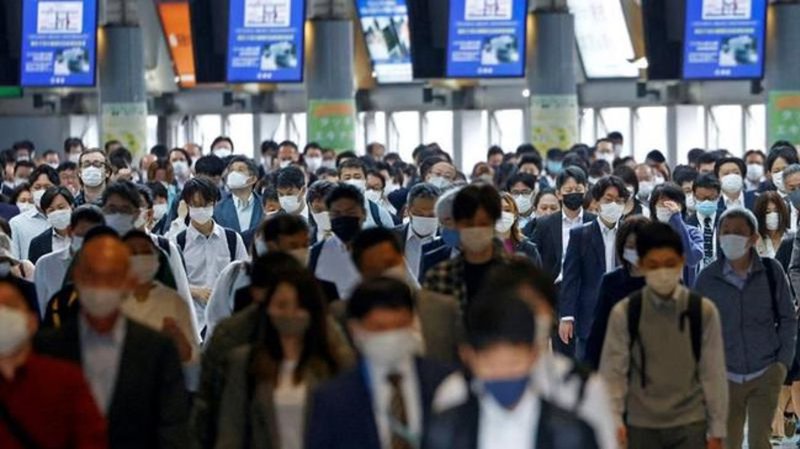
Packed trains, drinking: Japanese impatient over virus steps
TOKYO — Trains packed with commuters returning to work after a weeklong national holiday. Frustrated young people drinking in the streets because bars are closed. Protests planned over a possible visit by the Olympics chief.
As the coronavirus spreads in Japan ahead of the Tokyo Olympics starting in 11 weeks, one of the world’s least vaccinated nations is showing signs of strain, both societal and political.
The government — desperate to show a worried public it is in control of virus efforts even as it pushes a massive sporting event that a growing number of Japanese oppose hosting in a pandemic — on Friday announced a decision to expand and extend a state of emergency in Tokyo and other areas through May 31.
For Prime Minister Yoshihide Suga, the emergency declaration is both a health measure and a political tightrope walk as domestic criticism rises of Japan’s seeming determination to hold the Olympics, at any cost.


